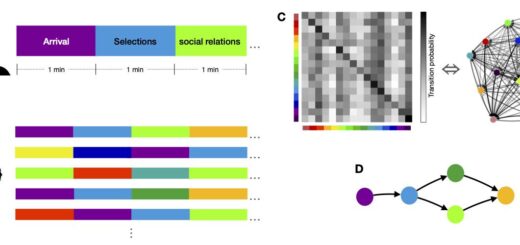**CANCELLED [see note below for more details]** – Esther Wilson (York), Heather Taylor (Kent), Leon Hughes (TCD)
This seminar has been cancelled. We are working with the speakers to give them opportunities to present their work at a future seminar. More information will be provided soon.
This seminar is 5:30 pm – 6:30 pm GMT at the Institute of Historical Research and live on YouTube.
Session chair: TBC
The IHR Digital History Postgraduate Panels showcase historical research using digital methods that is taking place in the postgraduate community. A series of short papers will be followed by a question and answer session.
Paper 1: Netflix’s The Crown and “The People’s Princess”: Making History in the Digital Sphere – Esther Wilson, University of York
The paper will utilise public social media responses to the depiction of Princess Diana in the fourth season of Netflix’s The Crown to explore the ways in which social media platforms can be used to inform, mobilise and share public interpretations of past and present. Today, we have a generation of social media users who are too young to have witnessed press discourse surrounding Princess Diana in the late 20th century, to have been part of her original cult following or to recall the complex commemorative reaction to her death in 1997, but who nonetheless encounter conflicting ideas surrounding her life, death and legacy. Drawing particularly on this generational perspective, the paper will highlight some of the ways in which on-demand content and social media have provided spaces for fresh engagement with historiographies of the royal family and British politics, from romanticisation and royalism to popular conspiracy theory and anti-establishment sentiment. Demonstrating the range of social media content creation and engagement across the Twitter, Instagram and TikTok platforms, the paper will draw out some of the complications of ‘doing history’ in the contemporary digital public sphere. Tying into my interdisciplinary PhD which considers the utility of digital ecosystem and critical discourse analysis frameworks for exploring how ideas about the past circulate in digital and social media environments, the paper will highlight the need for further academic understandings pertaining to not only how we approach the past in the digital realm, but regarding the construction of meaning, truth and discourse.
Biography: Esther Wilson is a doctoral researcher at the University of York, funded by the Arts and Humanities Research Council through the White Rose Consortium of Arts and Humanities (WRoCAH). Working largely within the Institute for Public Understandings of the Past (IPUP), her research considers the impact of evolving digital technologies on the formation, circulation and public consumption of historical ideas and knowledge in contemporary societies. Building on previous research into history on-screen, Esther’s thesis utilises Hamilton: An American Musical as a lens through which to explore multimodal interactions involving ideas about the past across the digital public sphere. Paying attention to how this digital sphere operates with regard to existing historical frameworks, this research sits as part of her broader interests in remediation, commemoration and material cultures.
Paper 2: Medieval charms and experimenta: towards a digital analysis tool – Heather Taylor, University of Kent
Charms and experimenta – texts which represent ritual practices using words and/or efficacious ingredients such as herbs and stones to bring about desired results – are prolific in medieval manuscripts. However, frequently serving multiple purposes and replete with numerous motifs, narratives, and biblical allusions, they have defied categorisation and are recognised as particularly difficult to typologise.
This paper will explore ways of using digital humanities techniques to apply analysis to such a diverse and complex dataset. It will present the initial results from using a prototype relational database using SQL Server technology to analyse 350 texts of charms and experimenta transcribed from medieval manuscripts. Through an exploration of this work in progress, it will consider the potential of such technology to provide new perspectives on medieval texts, including methods for making quantifiable comparisons between texts, even between those in different languages, and new approaches to categorisation which are fluid rather than static.
Biography: Heather Taylor is a final year PhD candidate in the Centre for Medieval and Early Modern Studies at the University of Kent. Her research, funded by a Vice Chancellor’s scholarship, examines ‘non-medical’ charms and experimenta in late-medieval manuscripts, with particular focus on those which seek to control aspects of social relations. Her research explores what these reveal about the prominent concerns of the period and how they resonate with our broader understanding of social attitudes and anxieties in the Middle Ages.
Paper 3: Digital Cartograph(ies) of Protest : Rhythms of Violent and Non-Violent Demonstrations in Revolutionary Paris, Summer 1792 – Leon Hughes, Trinity College Dublin
Using GIS methodologies, this study maps the 81 incidents of violent and non-violent demonstrations between June 1 and September 6, 1792 identified by Micah Alpaugh (2014). It asks how French Revolutionary protests used urban space, and the rhythmanalysis of this spatial negotiation. This study concludes that demonstrations arose in three asymmetric waves across the 99 days as spatio-temporal crescendos beginning in Faubourg localities, reaching pan-Parisian proportions concentrated around political centralities (the National Assembly, Tuileries Palace and Palais Royale) before de-escalating back into localities.
GIS methodologies hold potential for histories of experience/emotion for, in seeking to move past previous dominant logocentrism, it contends that by mapping revolutionary “events” one can begin to reconstruct the palimpsestic urban emotional/experience of bodies-in-space. This paper would also consider some of problems with GIS methodologies, as well as their potential as a dynamic quantitative methodology across historical disciplines.
Biography: Leon Hughes is a PhD student at Trinity College Dublin researching the emotional experiences of carcerality during the French Revolution. He is also interested in histories of nonhuman-human relationships, with specific focus on Arbres de la Liberté, as well as developing GIS digital methodologies.
